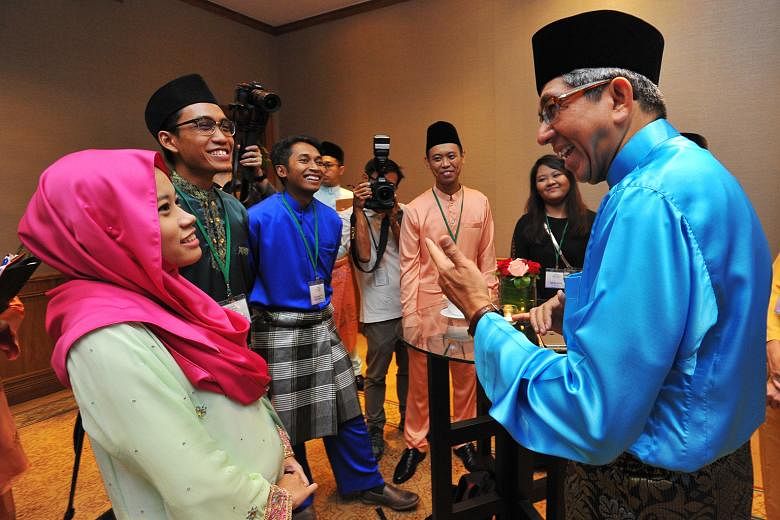The Muslim community is looking at setting up an Islamic college to produce religious leaders who are grounded in Singapore's unique multi-racial and multi-religious society.
Announcing this yesterday, Minister-in-Charge of Muslim Affairs Yaacob Ibrahim said the project requires careful study of its viability in a small country.
"It will need to be sustained by the community and be able to attract good faculty," he said.
"We must also aim high to build an institution of international repute yet (one that is) affordable."
Dr Yaacob was speaking to community leaders at an annual Hari Raya gathering, at which he also outlined the need to build institutions for the community just as the pioneer generation had developed welfare organisations like the Islamic Religious Council of Singapore (Muis) and madrasah.
Madrasah graduates who choose to be religious scholars often enrol in overseas Islamic universities, the minister noted.
"The various Islamic universities in the Middle East and the region have served us well,'' he said. "But there is a need for home- grown religious leaders anchored in our local multi-racial, multi-religious context and attuned to the concerns of our community in the ever-changing global environment."
Community leaders interviewed at the gathering, in Regent Hotel, welcomed a local Islamic college, saying it would allow students worried about the security situation in the Middle East to further their religious studies in Singapore. It would also ensure religious teachers are aware of local sensitivities, and have a strong appreciation of religious harmony.
Ustazah Farah Mahamood Aljunied, director of curriculum planning and development at Muis, said: "The Islamic college is the right next step for us as a community. As an educator, I'm definitely looking forward to the college."
She hopes it can contribute to the Muslim world beyond Singapore, on a way to practise Islam in an inclusive way.
Dr Yaacob, who is also Minister for Communications and Information, said Muis will study the feasibility of such a college, and he will consult community leaders as well.
In his speech, he stressed the need to continue strengthening the Malay/Muslim community's leadership and build on the legacy of its pioneers for future generations.
He outlined steps to develop youth leaders and preserve the knowledge and wisdom of the older generation.
Muis will work with the Ministry of Culture, Community and Youth to develop a core curriculum on inter-faith and inter-community understanding for secondary-level madrasah students. They already learn of such concepts, but there is room to deepen appreciation of the country's inter-faith ties and heritage, he added.
Community self-help group Mendaki will also expand a leadership scheme by matching young professionals with experienced community leaders.
The youth now attend workshops on social issues and start projects to benefit the community.
Said Dr Yaacob: "From this process, we hope new ideas will emerge on how best we can move our community forward."
It is important to preserve the wealth of experience gained by the community, he added. One way is through the recording of oral histories of the older generation.
The National Library Board and National Archives have done such recordings with about 400 Malay- Muslim personalities, and a committee will be set up to look at how to organise the interviews and to profile more people.
These "will help us understand better how the key players in our community made decisions, acted on their convictions and commitments, and helped shape our community", said Dr Yaacob.


